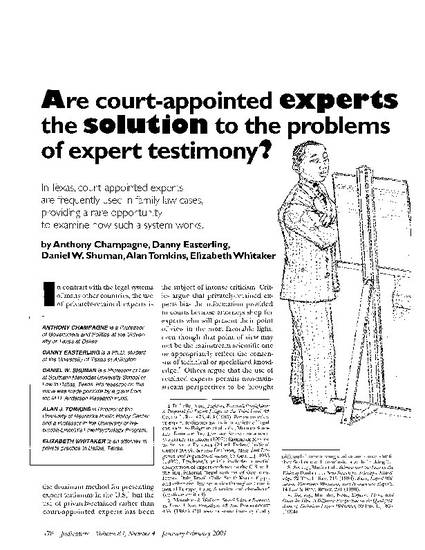
In contrast with the legal systems of many other countries, the use of privately-retained experts is the subject of intense criticism. Critics argue that privately-retained experts bias the information provided to courts because attorneys shop for experts who will present their point of view in the most favorable light, even though that point of view may not be the mainstream scientific one or appropriately reflect the consensus of technical or specialized knowledge. Others argue that the use of retained experts permits non-mainstream perspectives to be brought into court and gives judges little control over its introduction, and that privately-retained experts can be ex-pensive, since it is likely there will be a "battle of the experts. " Finally, critics argue that privately-retained experts can easily lose their objectivity since even competent experts feel pressure to accommodate their views to their attorney-employers.
Available at: http://works.bepress.com/alan_tomkins/14/

Published in Judicature, Volume 84, Number 4, January-February 2001 (178-183)